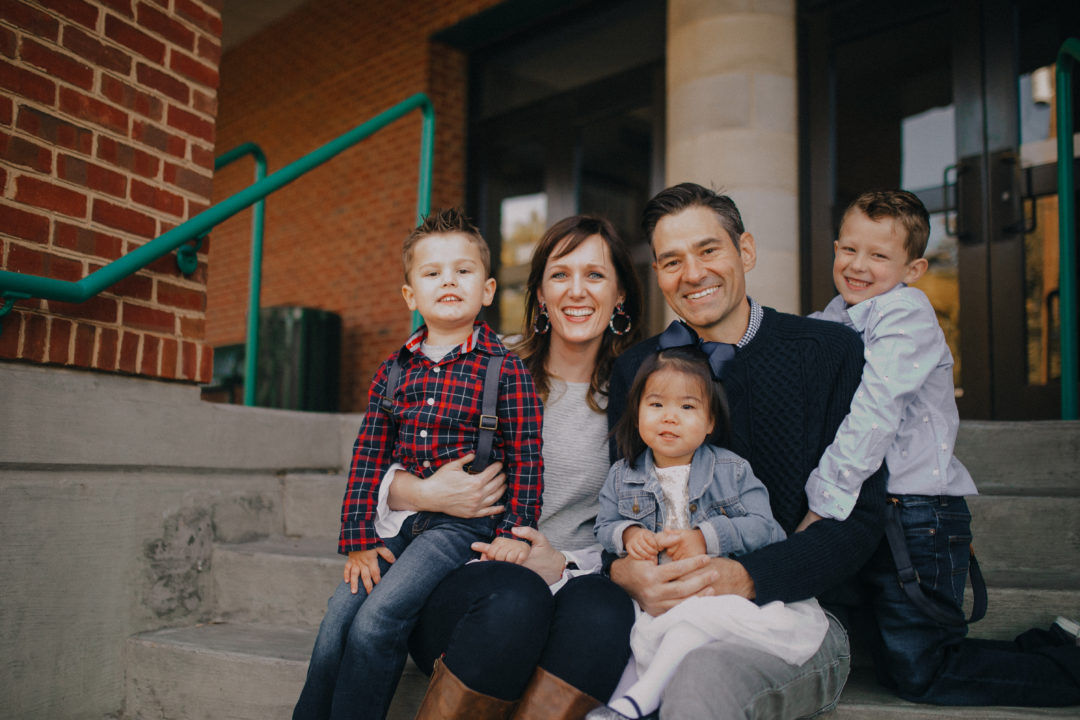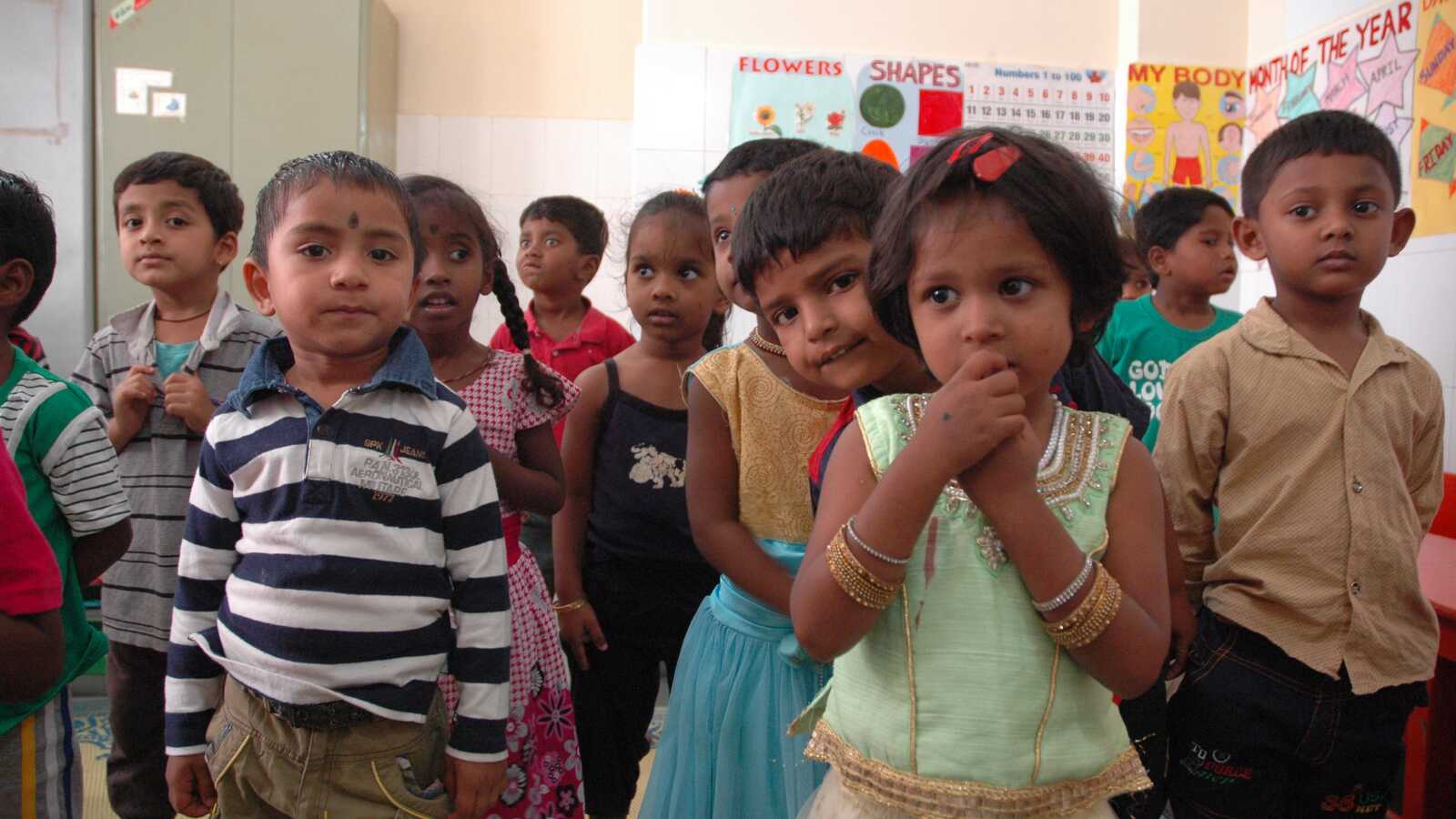An interview with Vaishali Vahikar, sponsorship director, and Nandini Sundaramurthy, executive director, at Bharatiya Samaj Seva Kendra (BSSK), Holt’s partner in Pune, India.
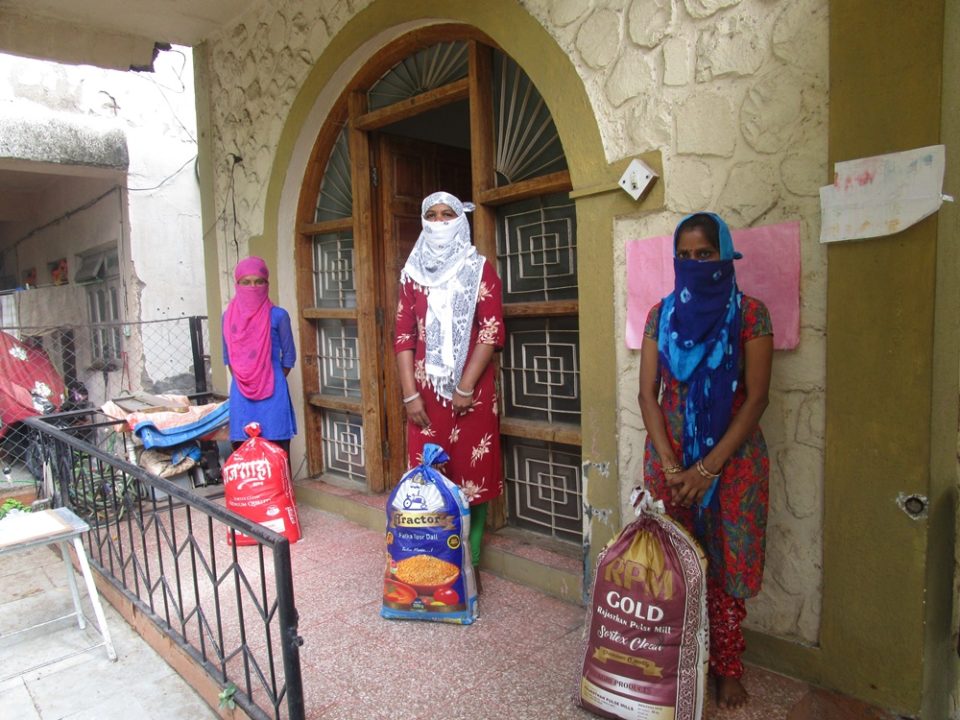
How is the pandemic affecting children and families in Holt sponsorship?
Vaishali: The children didn’t know why all these restrictions were being put on them. We had to start with telling them how corona spreads and how one should take precautions like putting on masks, washing their hands, sanitizing. If you’re out of house, you have to sanitize again when you come inside. So our initial work was more on educating the families regarding all the precautions one should take to prevent from getting infection.
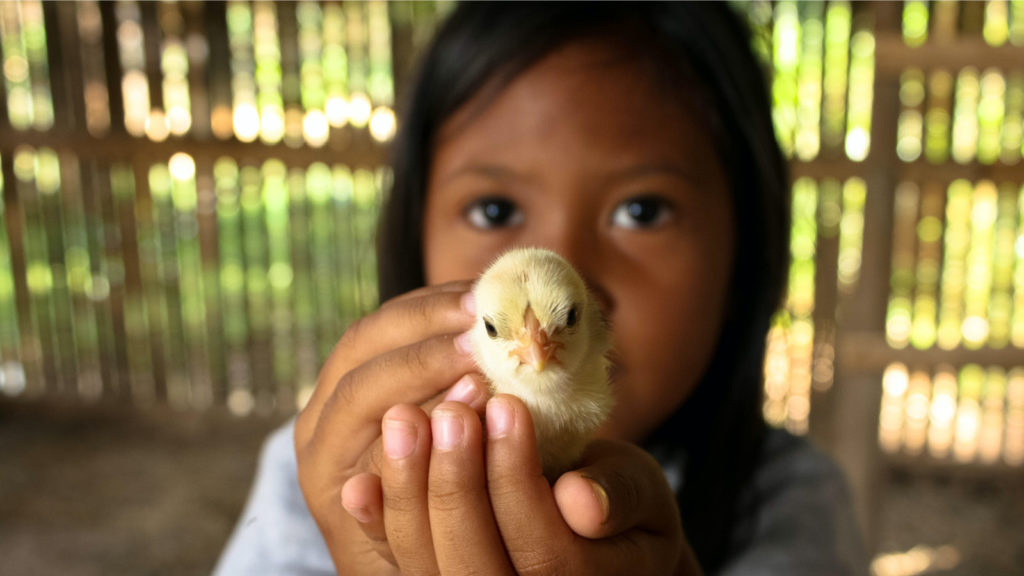
Give a Gift of Hope
Give a lifesaving or life-changing tangible gift to a child or family in need. And this holiday season, give in honor of a loved one and they’ll receive a free card!
Then some of the schools started online. … But for those online classes, many of the families didn’t have smartphones. And even if they had smartphones, they didn’t have money to recharge them. So there has been huge learning loss for the children.
Both parents were home [due to the lockdown] and they had no jobs to earn a salary. So all of those small savings which the family had were exhausted for their day-to-day needs. But for people who were addicted to alcohol … all the savings which were needed for families’ needs went to buying alcohol. Other social problems started, such as domestic violence. … There have been incidents of child marriage, child labor and school dropouts also.
Before the pandemic, child marriage was a rare occurrence in the communities where Holt sponsors support children. Why is it happening more now?
Vaishali: Indian marriages have lots of people coming together. But [marriages ceremonies have now] been restricted to 50 people. Their thinking was if they have a big marriage, they have to spend a lot for the ceremony. So they thought if they got their daughters married at this particular time, they’ll save on money. … The other thing was the parents thought if they leave their homes in search of jobs, they don’t have any security for their daughters [left] at home. So they feel marriage is the best solution to keep their daughters safe. And then, a [dependent] going from their house to another house will also cut down on their expenses.
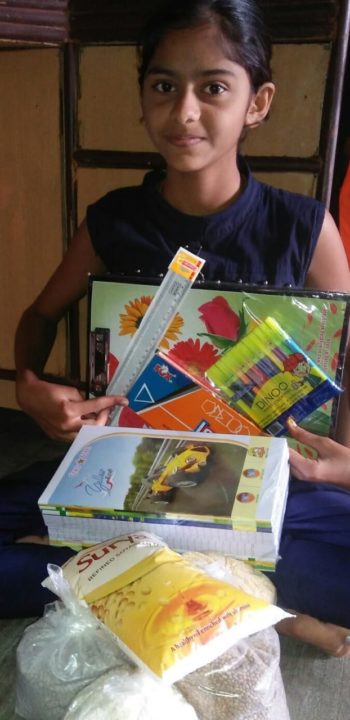
Is there anything your team can do to prevent these marriages from happening?
Vaishali: We have been calling our families who are in our educational sponsorship program and asking them, please don’t get your daughters married. The only thing which we can do is educate them. There are other NGOs that are working to stop child marriages. If somebody comes to know about a marriage being [arranged], there is a forum called the Actions for the Rights of the Child we can tell and they can with the help of police and other judiciary stop marriages. A few of the marriages have been stopped. But at present, [parents are careful not to] let the news get out so there should not be any problem in carrying out the ceremony.
If they’re married, will the girls have to drop out of school?
Vaishali: We are in contact with the parents of the girls and we have been asking them to see that their girls continue their education even if they are married. But we are not sure that this will happen.
Nandini: The one thing I want to add is also that we have been supporting students with college education. So hopefully people see that girls are able to study higher and make a living. Hopefully that will motivate families to let the girls continue their education.
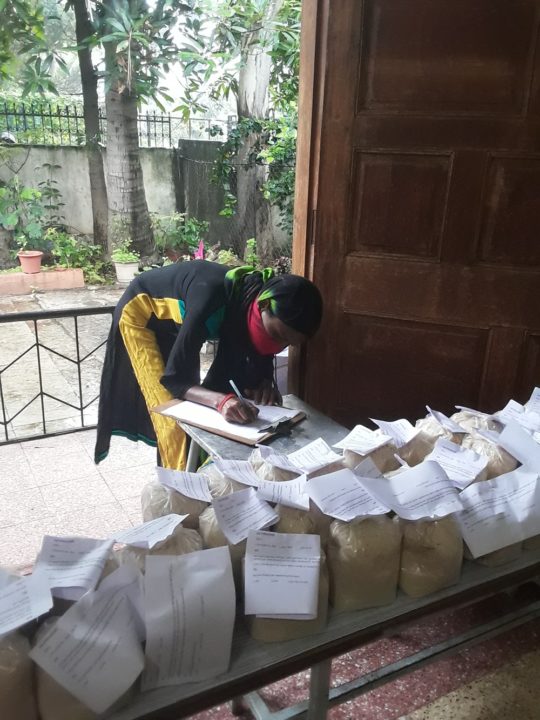
How have sponsors and donors helped meet the most urgent needs caused by the pandemic?
Vaishali: Many sponsors and donors have lent their kind hand by providing grain kits, electronics to children for online studies, school fees, medical needs, sanitary napkins, etc.
Nandini: Initially the government donated a lot of rice and pulses to them, but that would not take care of all the nutrition needs of the family. So we thought about developing a high-protein mix powder made from all kinds of grains, pulses, seeds, millets and distributed it to the children and families. So only a spoonful of this powder would take care of the nutrition of the child. … And again, a lot of online support was needed in the family.
Can you describe the online support you provided to families and children?
Vaishali: We found there was a lot of need to keep children creatively and productively engaged. We started various online activities. We had digital camps for children and parenting sessions for the parents. Because the parents and the children were 24/7 together … there was a lot of clashes going on between the parents and the children and we could see the children were getting affected. So we started our parenting sessions online.
I spoke a lot about stress management, anger management, understanding your child per age, giving space to your child, listening to your children. A lot of the discussion is on communication skills. And it was very nice to see that the mothers volunteered to participate in these classes and they had a lot of questions. … We asked children, “What changes do you find after your mothers have been attending these classes?” And the children were very happy to say, “Now my mother seems to be understanding me more.”
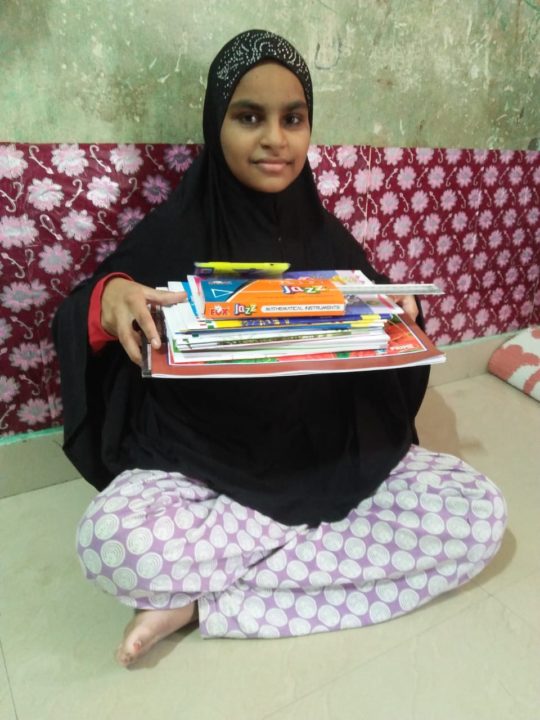
How has sponsor and donor support helped children continue their education during the pandemic?
Nandini: We help them with their notebooks and stationary. … We didn’t give them as much as we would have in a typical school year, so we cut it down in half but we supplemented with art material. And then the children needed masks so we got small masks made for them. … And we gave them some literacy material, age by age, starting with puzzles or books which normally these children don’t have access to … Each child got a science kit they could make, whether it was a human body or a car or whatever. The teacher who made it had online sessions with the children to show them how to construct the set or how to make this experiment. … And then mobile phones. With sponsor and donor support, we distributed nearly 30-40 mobiles.
How is COVID-19 affecting India in general and what is life like there right now?
Vaishali: The cases have gone down but again they are increasing. There are a lot of asymptomatic cases. People have taken liberties with [the lockdown ending] and they have been going to their villages, meeting people. There is some liberty they’re taking in not putting on masks, not sanitizing themselves. … So there’s a sudden outbreak of infection at present and all the schools are again closed down.
In what ways will sponsor and donor support be critical in the coming months?
Vaishali: In the coming period, a lot of rework needs to be done [to regain progress that was set back due to the pandemic] … Lots of social issues need to be addressed for which we had worked on the last 5-7 years. These include child marriage, girl child education, domestic violence, child labor, de-addiction, family health care, basic sanitization practices, etc. Along with the above, sponsor and donor support will be needed to help regain educational progress lost in the smaller kids. Now, curative education needs to be taken up as a project so that they regain their basic literacy. [Support from] sponsors and donors will accelerate the process of reform.
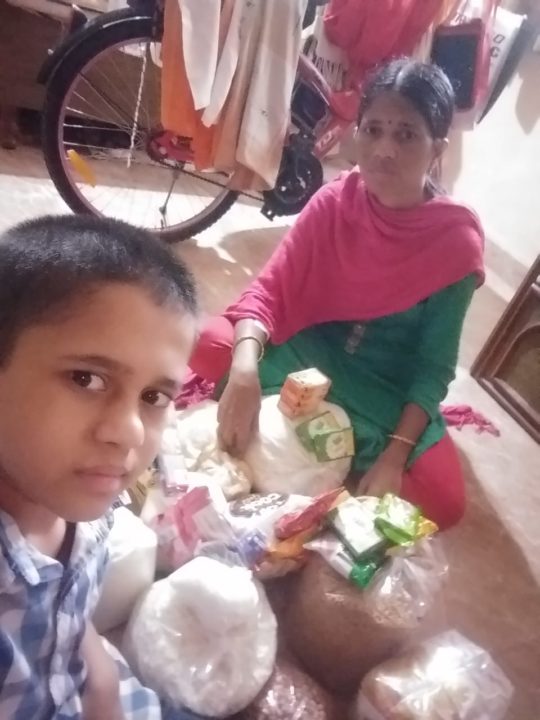
What would you like to say to sponsors and donors directly?
Vaishali: Thanks for all the patience and support you have shown since last year. This year too seems to be a coping year for all of us, especially the underprivileged ones. The adults in the family are struggling hard to meet both the ends. It is really necessary for we as adults to be with the smaller ones, understand and support them to help them achieve their dreams, as they are the future for which their today needs to be taken care of.
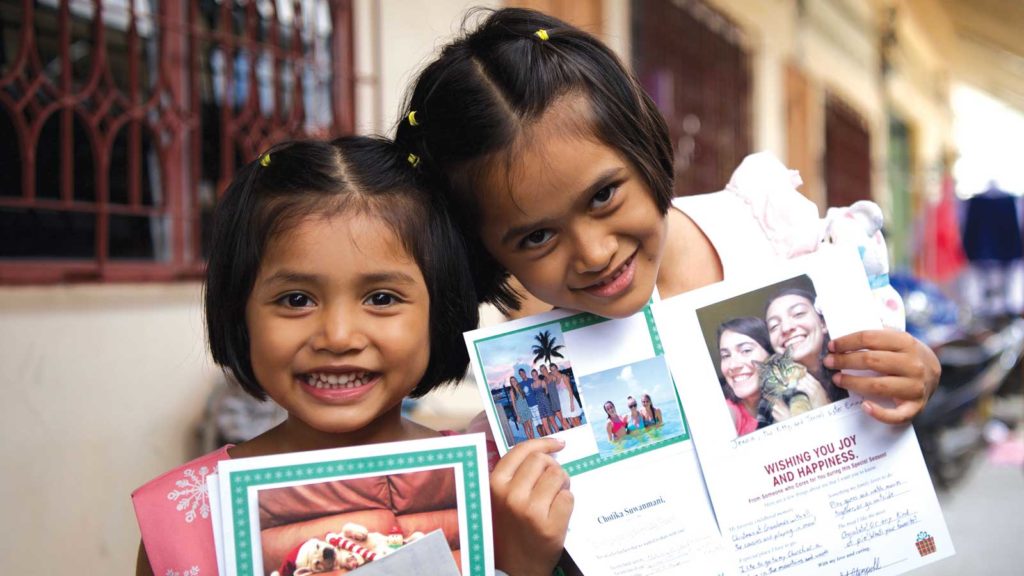
Become a Child Sponsor
Connect with a child. Provide for their needs. Share your heart for $43 per month.

